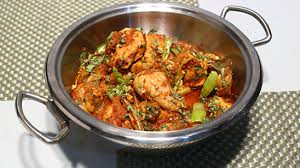Introduction:
A career as a pastry chef is both rewarding and fulfilling for individuals with a passion for baking and creating delectable desserts. Apart from the creative aspect, many aspiring pastry chefs are also interested in understanding the financial prospects of this profession. This guide aims to provide an in-depth analysis of the salary range for pastry chefs, including factors that influence earnings, job opportunities, and the potential for growth within the industry.
Table of Contents:
- Understanding the Role of a Pastry Chef
- Factors Influencing Pastry Chef Salaries 2.1. Education and Training 2.2. Experience 2.3. Geographic Location 2.4. Industry and Work Setting 2.5. Size and Reputation of the Establishment
- Average Salary Range for Pastry Chefs
- Job Opportunities for Pastry Chefs
- Advancement and Growth Opportunities
- Benefits and Perks
- Tips for Maximizing Earnings as a Pastry Chef
- Conclusion
- Understanding the Role of a Pastry Chef:
A pastry chef is a culinary professional specializing in creating baked goods, desserts, and pastries. They are responsible for developing recipes, preparing ingredients, baking and decorating pastries, managing inventory, and overseeing the overall quality of the pastry section. Pastry chefs work in a variety of settings, including restaurants, bakeries, hotels, resorts, and catering companies.
- Factors Influencing Pastry Chef Salaries:
Several factors play a significant role in determining the salary of a pastry chef. Understanding these factors can help individuals gauge their earning potential and make informed decisions about their career trajectory.
2.1. Education and Training:
Formal education in culinary arts can greatly impact a pastry chef’s earning potential. Completing a degree or certificate program from a reputable culinary institute or a specialized pastry school equips individuals with the necessary skills and knowledge, making them more marketable to potential employers. Additionally, certifications such as Certified Pastry Culinarian (CPC) or Certified Executive Pastry Chef (CEPC) can contribute to higher salaries.
2.2. Experience:
Experience is a crucial factor in determining a pastry chef’s salary. As chefs gain more years of experience, their expertise and skills improve, leading to higher demand and better compensation. Many entry-level positions exist for aspiring pastry chefs, such as pastry cook or assistant pastry chef, which allow them to build their experience before progressing to higher-paying roles.
2.3. Geographic Location:
The geographic location of employment significantly influences a pastry chef’s earning potential. Salaries can vary based on the cost of living, the demand for pastry chefs in a particular area, and the overall economic conditions. For example, pastry chefs working in metropolitan cities with high-end restaurants or luxury hotels tend to earn more compared to those working in rural or less affluent areas.
2.4. Industry and Work Setting:
The industry and work setting also impact the salary range for pastry chefs. Fine dining establishments and high-end hotels often offer higher salaries due to the higher expectations and standards associated with their pastry departments. On the other hand, pastry chefs working in smaller bakeries or independent restaurants may earn less but have more creative freedom and flexibility.
2.5. Size and Reputation of the Establishment:
The size and reputation of the establishment play a role in determining a pastry chef’s salary. Larger establishments with multiple outlets or high-profile establishments tend to have bigger budgets, allowing them to offer more competitive salaries. Furthermore, pastry chefs working in Michelin-starred restaurants or prestigious pastry shops may earn higher salaries due to the enhanced prestige associated with such establishments.






































